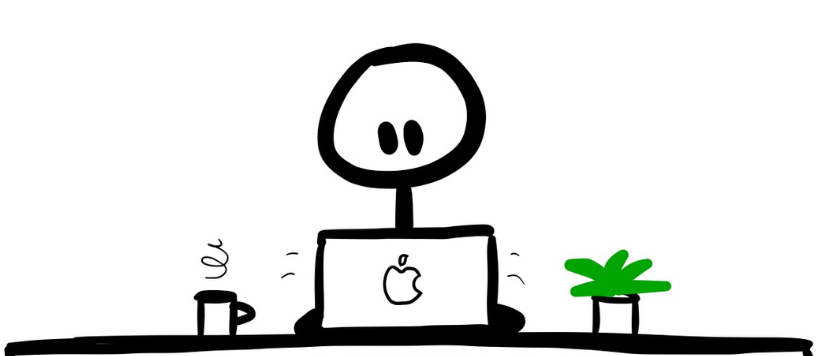Ondrej Markus
Entrepreneur in ed-tech, building the future of education as a founder and CEO at Playful.
I write about the future of education, designing learning games, and running a startup.
I'm a generalist, introvert, gamer, and optimizing to be useful.

Find a productivity system that works for you

A viable productivity system
Everyone has a system
Even if you consider yourself chaotic and you don’t like having a formal system, you do things in patterns.
For example, you might not have a specific time of day to get your writing done, and you write only when you feel like it. That’s a rule. And if it works for you, it’s a good one.
So this article isn’t just for system geeks who reorganize their to-do lists for fun. (🙋) It’s for anyone who wants to succeed at whatever they do by finding a simple process that works.
Notice what works for you
There is an abundance of sources to live by – books, articles, influencers. Everyone is saying something else.
Whatever is your goal, you can easily lose yourself in searching for the best option.
- Which note-taking app is the best for creative writing?
- Which exercise program is the best for increasing strength?
- Which online course is the best for learning Python?
The fear of missing a better option is lurking behind every choice. But looking for the best is a trap.
You don’t need the best method, you just need a method that works for you. And there is no way of knowing what works for you until you try it and see what happens.
To judge if my system works, I ask myself two questions:
- Am I finishing the right things?
- Am I enjoying the process?
If both are true, I know I’m fine. If not, I need to change things up.
But how do you find out if they are true for you?
Finish the right things
In the past, I often felt productive – like I’m checking one box after another – but nothing important got done.
I focused on reaching made-up metrics instead of finishing real things. So I couldn’t tell if what I’m doing is actually working.
That’s why these days I commit to finishing projects rather than aiming for numbers.
- Writing → Am I finishing articles? (Instead of: Did I reach 10 000 views?)
- Exercise → Am I finishing workouts? (Instead of: Did I reach 10% body fat?)
- Programming → Am I finishing applications? (Instead of: Did I reach 1000 downloads?)
Focus on concrete outcomes works better because finishing things is under your control but reaching metrics isn’t.
You can probably tell right now if your process is helping you consistently finish important things. And as long as it does, the methods you use are good enough. Don’t fix what isn’t broken.
On the other hand, if you’re not finishing the right things, make changes to level up your system. Experiment with new tools and habits, keep what works, and discard the rest.
But finishing things isn’t everything that counts. There is a second essential part to making your system work in the long run.
Enjoy the process
Procrastination happens when you do things you don’t enjoy.
If you try to be a productivity machine that doesn’t care about its feelings, you will get procrastinated. So don’t ignore how you feel during the process.
Feelings are essential feedback signals hinting at what needs to change, not a noise to be ignored. If you don’t enjoy what you’re doing, it means it doesn’t work for you.
Of course, a little push here and there is often necessary to get the work done. That doesn’t mean your system is doomed to fail.
But there is a limit on how much pushing is compatible with preserving your mental and physical health. This means you have to know yourself well enough to balance rigor with ease.
What you are looking for is overall content with what you are doing – a feeling of I could just do this forever – despite sometimes having to overcome tedious but necessary tasks.
For example, I enjoy the process of writing, but it doesn’t mean I don’t get frustrated, annoyed, and stuck every other day – oh I do. And it’s that feeling of macro-satisfaction that helps me make it through the everyday micro-struggles. Otherwise, I wouldn’t bother and make TikTok videos instead.
So if what you’re doing now doesn’t come naturally, look for a change: What could you do to make the process more enjoyable?
Pay attention to your feelings. Finding what you enjoy doing is the difference between swimming with or against the river. You can do either, but one is clearly the smarter option.
This is probably the most significant change you can do for your productivity and overall well-being.
Summary
Success in almost every area of life needs consistent effort over time.
Finishing the right things is reliable proof of being on the right track, and enjoying the process is the most viable strategy for persisting long enough to get the results you want.